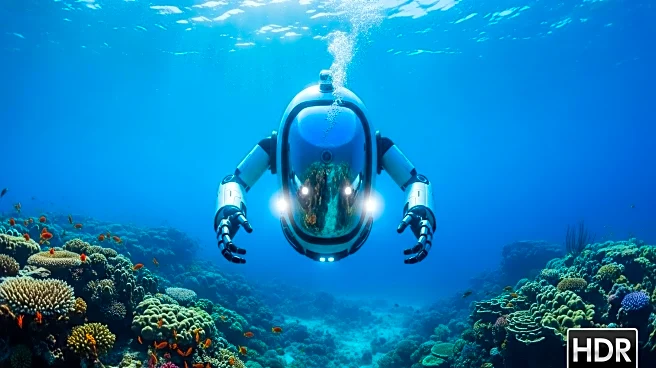What's Happening?
The research vessel Falkor (too), owned by the Schmidt Ocean Institute, encountered technical issues during a deep sea expedition in Uruguayan waters. The vessel, which had embarked on the 'Uruguay SUB 200' expedition on August 22, was forced to return to the Port of Montevideo for repairs. The malfunction involved the A-frame structure used to deploy and recover heavy underwater equipment. The expedition aimed to explore marine ecology, underwater archaeology, and deep-sea mapping with a team of 37 scientists from 18 institutions across six countries. The vessel's return to port has delayed the month-long mission, which was expected to include live broadcasts of the seabed exploration.
Why It's Important?
The technical setback of the Falkor (too) expedition underscores the challenges faced in deep-sea research, which relies heavily on advanced technology and equipment. The expedition was significant for its potential contributions to marine science, including insights into marine ecology and underwater archaeology. The delay may impact the scientific community's ability to gather data and share findings with the public. The vessel's malfunction highlights the importance of maintaining and upgrading research equipment to ensure successful missions. The expedition's interruption may also affect international collaboration efforts in ocean exploration.
What's Next?
The Schmidt Ocean Institute and the Universidad de la República are expected to address the technical issues and resume the expedition once repairs are completed. The scientific team may need to adjust their research plans and timelines to accommodate the delay. Stakeholders, including the Uruguayan government and international research institutions, may monitor the situation closely to ensure the expedition's objectives are met. The vessel's return to port provides an opportunity to assess and improve the equipment to prevent future malfunctions.









